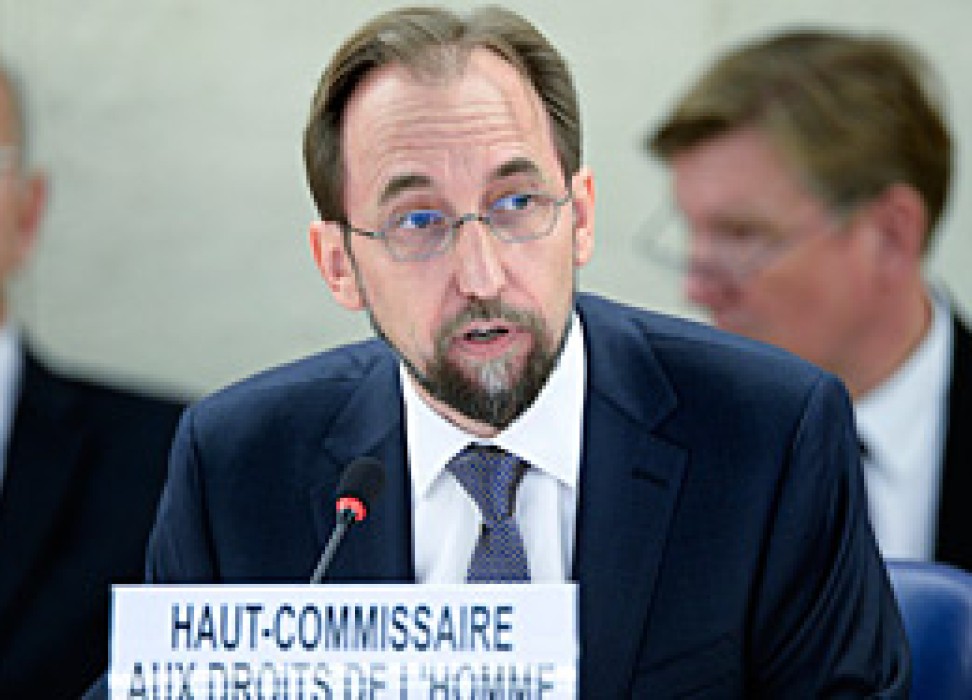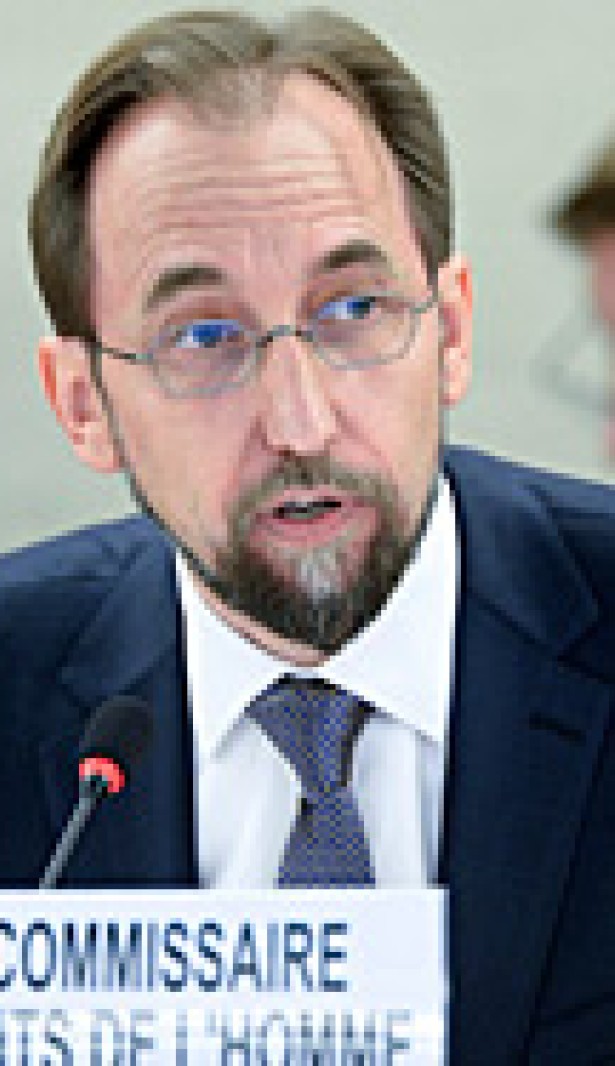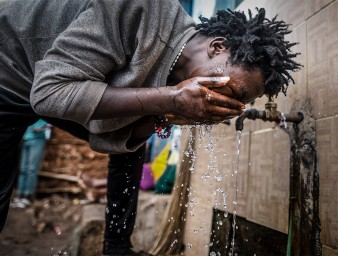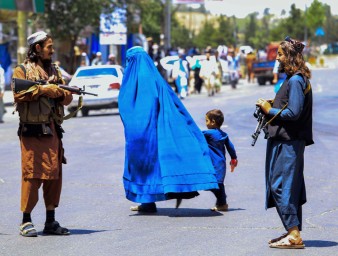UN Human Rights Chief Zeid addresses the 27th Human Rights Council session
10 September 2014

In his first address to the Human Rights Council in Geneva, the newly appointed UN Human Rights Chief, Zeid Ra’ad Al Hussein, described the dramatic escalation of conflicts in the Middle East and North Africa that have severely affected the rights of millions of traumatised civilians.
According to UN reports quoted by Zeid, over 190,000 people were killed in Syria between March 2011 and April 2014, and some 6.5 million people, almost half of that country’s population, had fled their homes.
One of the consequences of the Syrian conflict was the emergence of the Takfiri or so-called Islamic state in Iraq and the Levant (ISIL) group that has taken advantage of the chaos and taken control of large parts of Northern Iraq. The systematic and widespread attacks on particular ethnic and religious groups committed by ISIL in Iraq, Zeid recalled, may constitute crimes against humanity.
The High Commissioner called on the international community to take further steps to curtail impunity for human rights abuses in Iraq and analysed the underlying patterns of violations and discrimination at the root cause of the conflict.
“Leaders who oppressed or violently attacked independent actors of civil society; institutions that failed to include broadly inclusive participatory processes; a comprehensive failure to promote and protect economic and social rights, as well as civil and political rights – such factors, alongside years of conflict, discouraged the development of tolerant and moderate civil society movements, while the only dissident groups that did flourish underground were extremist ones,” he recalled.
Another illustration of “persistent discrimination and impunity” was the Israel-Palestine conflict which, according to estimates on the most recent outbreak of armed conflict has claimed the lives of 2,131 Palestinians in Gaza, including 1,473 civilians, and 71 Israelis.
The High Commissioner stressed that Palestinians in Gaza and the West Bank had a right to live normal lives in dignity and free from the infringements to their rights caused by the military occupation, and that Israelis had the right to live free and secure from indiscriminate rocket fire.
Zeid also addressed the on-going conflicts that deserved the continued attention of the Council and his Office in Central African Republic, the Democratic Republic of Congo and South Sudan, and the growing threat to regional security that represented the deteriorating situation in Libya. He noted that during the current session of the Council, the UN Human Rights Office will present reports on the situation in Sri Lanka, and in Ukraine where some 3,000 people have been killed since mid-April.
Referring to the engagement of his Office with Member States, the High Commissioner said that he would give utmost importance to the findings of the UN human rights mechanisms, such as treaty bodies, the Special Rapporteurs and the Universal Periodic Review of the Council. He also commanded the work of civil society actors, whose engagement was vital to the effectiveness of the human rights machinery, and condemned reprisals against individuals who engage with the UN.
Zeid also noted that the Sustainable Development Goals (SDGs) that will replace the Millennium Development Goals in 2015 should effectively integrate all human rights, including the right to development, and address discrimination and inequalities that hinder peoples’ progress.
The High Commissioner finally highlighted the situation of migrants across the globe who often fall victim to human trafficking, endure ill-treatment at borders and are subjected to prolonged detention in deplorable conditions.
Zeid noted that in 2014, Italian coastguards assisted over 100,000 migrants arriving by sea but almost 1,900 perished in the Mediterranean. Australia’s off-shore processing of asylum seekers, and interception of and turning back of vessels, has led to “arbitrary detention and possible torture following return to home countries.” Further, some of the 50,000 unaccompanied Latin American children fleeing violence in their countries have been detained on arrival to the United States.
“Human rights are not reserved for citizens only, or for people with visas. They are the inalienable rights of every individual, regardless of his or her location and migration status,” the High Commissioner stressed.
10 September 2014




